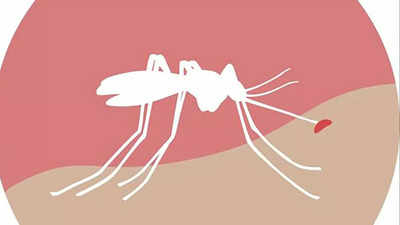Trending
One more pregnant woman tests positive for Zika in Pune; tally rises to 6
Pune's Zika cases rise, with two pregnant women affected. State health department and NIV recommendations prompt action. Dengue cases spike, leading to increased vigilance. Chikungunya cases reported, urging private hospital cooperation. PMC intensifies surveillance, sample collection, and penalties for violators, focusing on outbreak containment.

Representative Image
The case came to fore as a part of the Pune Municipal Corporation's surveillance drive initiated following the emergence of Zika cases in at least three people in the Erandwane area last month.
A civic health official said the woman, in the 16th week of pregnancy, did not exhibit any symptoms. "The National Institute of Virology (NIV) on July 1 confirmed the infection in the woman as a part of PMC's surveillance drive in the area," the civic official said.
Infection in kids can harm brain functions, lead to complications
The official added that earlier, a pregnant woman staying barely 150m away had tested positive for Zika infection.
Zika virus infection during pregnancy could cause microcephaly and other congenital abnormalities in foetus and newborn.
Microcephaly is a condition wherein the baby’s brain is much smaller than the normal size, showing brain’s underdevelopment, thus, hampering the child’s intellectual abilities. If the infection harms the brain functions, the child could report more complications including seizures,
developmental delays, hearing loss, imbalance and vision problems, the experts said.
Amid rising infection in the city, a group of officials from NIV, health department and BJ Medical College held a videoconference to discuss various methods to control the spread, besides on the strain lineage, on Monday.
Dr Rajesh Karyakarte, head of the microbiology department at the BJMC, said, “We have requested state health department to send us as many blood samples as possible to undertake ge nome sequencing. The sequencing will reveal the strain in circulation. The strain with Brazilian gene mutation can cause microcephaly. So, we need to know the strain in circulation and devise ways to fight it.”
The first pregnant woman had tested positive for Zika infection on June 28. Dr Rajesh Dighe, assistant health officer, PMC, said, “We do not have any blood sample reports pending as of Monday, but we are yet to get the sample test report for the mosquito samples collected by NIV. We will send more samples on Tuesday. The 35-year-old pregnant woman is yet to undergo her first anomaly scan. Our health officials are in touch with her on a daily basis.”
Dr Radhakishan Pawar, joint director, health services, Mumbai, said, “The Monday’s videoconference was held to clear all doubts among ground staff regarding sample collection of suspected patients, their storage, transportation and maintenance of the cold chain. NIV scientists spoke specifically on the sub-clinical transmission among asymptomatic people. Focus was also laid on looking out for pregnant women within 5km radius of the two cases.”
End of Article
FOLLOW US ON SOCIAL MEDIA











